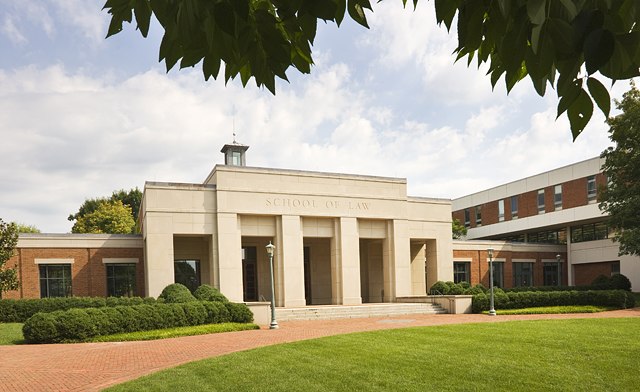
Last night, the Blue Ridge Center and pre-law fraternity Phi Alpha Delta co-hosted a talk from UVA Law professor Lawrence Solum. Undergraduate and law students alike braved the dismal rain to gather in Monroe Hall and hear Solum’s defense of an originalist interpretation of the Constitution.
So, what is originalism? Put simply, it is a means of interpreting the Constitution based on the original public meaning of the document. It is often set at odds with the concept of living constitutionalism, which posits that the Constitution ought to be reinterpreted and reimagined as new situations unknown to the original authors arise. The debate between both schools of thought has been lively for over a century.
Solum defines modern originalism as an entity based on three premises. The first is what Solum calls the “fixation thesis,” which accounts for linguistic drift by interpreting the language of the Constitution as it would have been understood at the time it was written. Solum’s “favorite example” is Amendment VII, which preserves the right to a jury trial in cases where more than twenty dollars is at stake. Of course, twenty dollars means something quite different in 2024 than it did in 1789 before the US dollar was even established. Thus, an originalist reading of the amendment will indeed adjust for inflation; it does not expect early America’s language to conform to today’s, as is a common misconception.
Originalism also mandates the “public meaning thesis.” Solum clarifies that in this case, “public meaning” means “ordinary meaning, and the idea is that the Constitution was written so that its meaning was accessible to […] the people.” As a document written for the people, the Constitution presents itself “as an act of popular sovereignty” through its famous introductory line “We the People.” Furthermore, Solum points out, every state held ratification conventions in which ordinary people were able to sit down and discuss the new document. We are in the same position as these citizen-ratifiers today, and therefore must try to view the document through their eyes.
Lastly, Solum discusses what he calls the “constraint principle,” which means that the original public meaning of the text is binding and that “constitutional actors” ought to work according to the parameters set by the Constitution.
Rather than immediately launching into a defense of originalism, Solum first addressed the most well-known alternatives: first, abolishing Constitutional review of legislative action, which according to Solum which would put Congress in charge of defining “what rights we have, what powers Congress itself has, and what the relationships between state governments and the federal government are.” The argument against this approach, Solum says, is quite obvious: Congress will inevitably “choose in favor of its own power.”
A second alternative is sometimes referred to as “common law constitutionalism,” which makes the courts, fundamentally the Supreme Court, the arbiters of the Constitution. However, the Supreme Court is always bound to lean toward one political party or the other, which would disproportionately empower said party.
Of course, the primary question put to an originalist approach is whether the Constitution can be taken at the original meaning of its words when it was originally only written for and ratified by white landowning men. Solum’s response is that although the Constitution is certainly not perfect, that does not affect the way we interpret what the words of the Constitution mean. Furthermore, although the process of writing the Constitution may have been illegitimate by not including the majority of American society in its ratification, our entire system of government was created by this same Constitution. “We are going to have to work with institutions that are not perfectly legitimate,” says Solum, because “legitimacy has to take into account the fact that standards of legitimacy change over time.” Does the current government need to be overthrown because its origins did not include everyone?
“I’m an originalist, but not because I believe we have a perfect constitution,” Solum said to close his lecture. “We do have a constitution that has mostly worked […] and that’s no mean achievement. A stable constitutional order creates great goods in spite of the fact that it’s an imperfect constitution.”


Leave a Reply